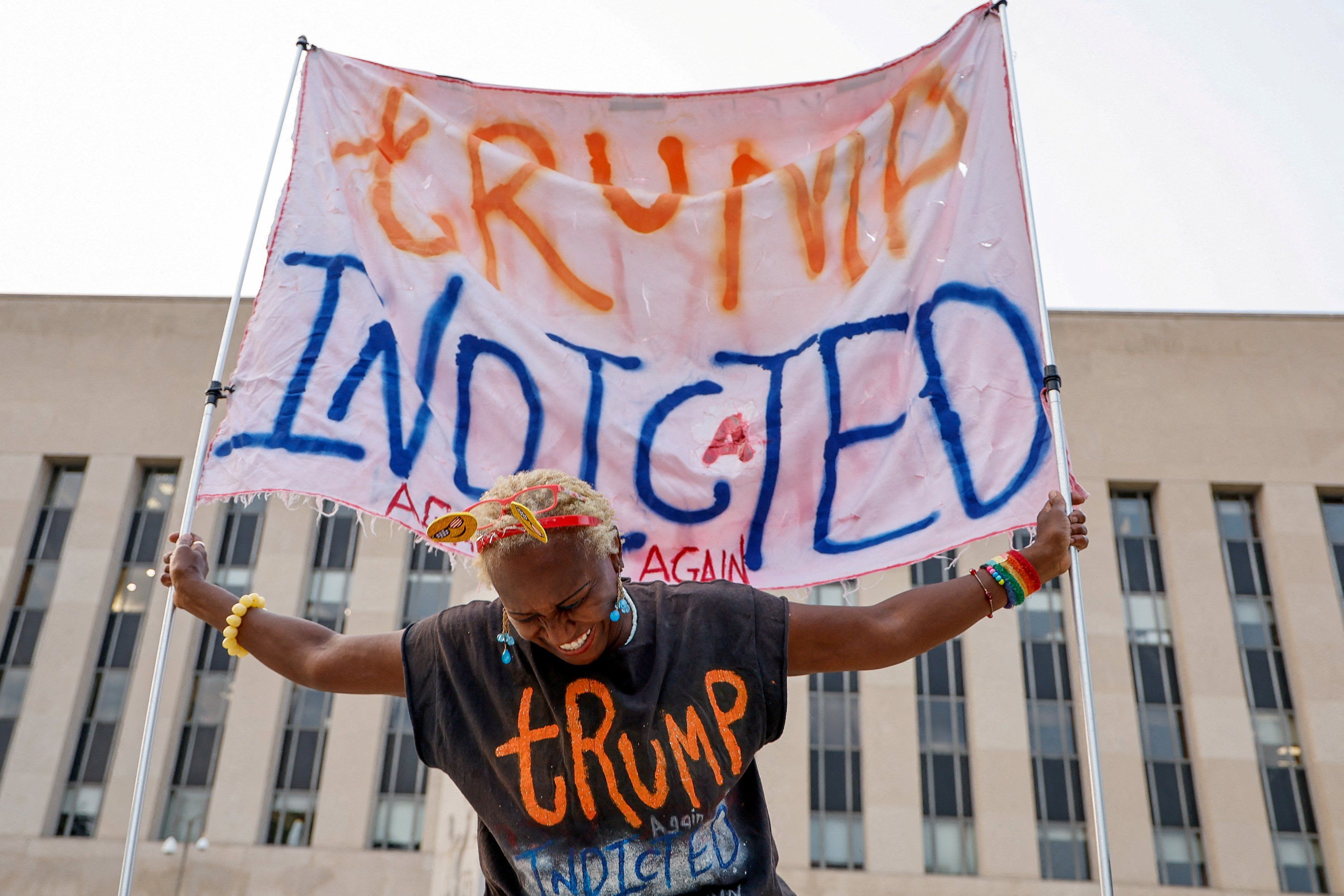Former President Donald Trump will appear in federal court on Thursday after being indicted by federal prosecutors for allegedly trying to overturn the 2020 election result.
(For more on what’s in the indictment, see here.)
Amid a seemingly never-ending loop of Trump legal quandaries, what makes this case different from the former president’s other legal woes?
Many legal scholars have said the other two cases in which Trump has been indicted in recent months – relating to hush money payments made during the 2016 presidential campaign and the mishandling of classified documents – are more minor compared to the severity of the federal counts he’s now facing. Indeed, the federal indictment accuses him of “defrauding the federal government,” and, well, attempting to steal the presidency itself.
What’s more, the documents case (the trial is scheduled for May 2024) will be presided over by a Trump-appointed judge in deep-red Florida who has made legal decisions in the past beneficial to the man who gave her the job.
Conversely, this case will be heard by an Obama-tapped judge who has issued harsh sentences against Jan. 6 rioters and compelled the Trump team to grant Congress access to crucial materials during the course of its probe of the Capitol riots that became the cornerstone of the investigative committee’s findings.
Lawyers in the hush money payment case in New York, meanwhile, will need to prove that Trump falsified business records in order to cover a crime – which many legal scholars say will be hard to do. But in the election case, some of the Jan 6. rioters have already been tried – and found guilty – under the same statutes.
Finally, this is uncharted waters for the US. No president has ever been charged with trying to steal an election, and no prosecutor has ever had to navigate such unknown legal and political territory.
Both sides will try hard to determine what evidence can be used at trial, which, given Trump’s other court cases – and the sensitivity of this case – could still be many months away. Still, all four of the felonies Trump is facing carry potential prison terms of between 5-20 years. So, could he pardon himself if he were to win the 2024 election? There’s no clear-cut answer, experts say, given that no president has ever been hit with criminal charges.
